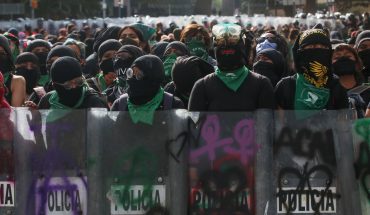A moment of happiness, but at the same time very sad lived the team of “Argentina, 1985” when they received the news of their nomination for the Oscar 2023.
Happy for the international recognition that means being part of this ceremony, but with great sorrow for the death of one of the actors in its cast, Claudio Da Passano, who played Carlos Somigliana, a prominent Argentine playwright, who was part of the team of the Prosecutor’s Office that carried out the Trial of the Juntas of 1985 —which the film recreates—, In which the military leadership of the Argentine dictatorship (1976-1983) was tried.
Until a few hours before both events, the screenwriter of the film, Mariano Llinás was in Chile, invited by the Diego Portales University, to visit the new School of Cinema and Audiovisual Realization of the house of studies. There, the Argentine actor and director also held a film clinic and participated in an Open Chair in Homage to Roberto Bolaño.
During his time in Chile, Llinás referred to the success of the film, which a few days ago had received a Golden Globe and has had wide international recognition.
“Honestly as an eccentricity I’m thinking about it. I am someone who has been working in cinema for a long time and it is the first time that I am involved in a business like this, of international awards. So I’m living it as an adventure, something completely exceptional, as if suddenly I had been taken to visit another planet, then I look at the things that happen on that planet, but I am very aware that it is one planet and that I belong to another, “he said.
“Argentina, 1985”, strongly captured the attention of the trans-Andean public, which despite being able to see it via streaming, formed lines outside the country’s cinemas. A fundamental part of this phenomenon was that it is a film based on recent historical events, which meant a challenge in itself.
“Cinema is not an instrument of anything. Cinema is cinema and it is handled with its terms, it relates to the themes from its own language, from its own mechanism. That was the commitment and responsibility: never stop leaving the territory of cinema to relate to the issues, not to make a propaganda, which was what many people thought. For me it is no small thing that the film has done well. If it happened it was thanks to the cinema, that’s my conviction. I see a confirmed suspicion and that is that cinema still has its mechanisms to move and that these mechanisms are not easily replaceable by others, “he said.
Llinás also referred to Latin American cinema and its current state.
“I get the impression that it is not a good time for cinema for several reasons and one of them is that it is a time when directors shoot few films. I believe that the great moments of cinema are those in which a lot was filmed. The production mechanisms have become so demanding, the financing mechanisms, the habits of the producers have become so restricted that now a director shoots a film every 10 years, I would say. And that’s not good, that kind of obedience due to traditional financing mechanisms. And at the same time, it has never been easier to shoot a movie. Directors simply like to be part of a system that protects them even if that system condemns them to a kind of production famine,” he criticized.
To learn more about what is happening in the world of science and culture, join our community Cultívate, El Mostrador’s Newsletter on these topics. Sign up for free HERE
Follow us on





